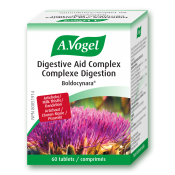Falling estrogen and your digestion
The main culprit is the drop in estrogen levels, which affects digestion by slowing it down. Low estrogen can also decrease acid production in your stomach, and the resulting low acidity can cause indigestion and gastric reflux too.
Stress and digestion
The other main issue with this is stress. And as I’ve said before, we’re all busy people and most of us will experience stress during menopause. So if you’re like most women, your nervous system is pulled into the whole menopause picture whether it wants to or not. What happens is that your nervous system becomes much more sensitive to all sorts of situations during the day, becoming much more reactive to things that it would never have bothered with before. Maybe you’re a little late for work, or maybe you’ve missed the bus, or maybe you can’t find your car keys. These little things, which might not have bothered you a few years ago, can now start triggering a nervous system response.
You’ve heard of the fight or flight response, haven’t you? When this reaction is triggered, your digestive system gets switched off. And if you’re getting these episodes on a daily basis, as most of us do during menopause, your digestive system gets switched on and off, on and off, and on and off a number of times a day. And that’s really going to interfere with your digestion on every level, causing things like indigestion, gastric reflux, bloating and even constipation.
Simple eating tips for improving digestion
So what you need to do is look at ways to address this, and most options are really simple. First, sit properly when you’re eating. I’ve discussed this before. If we sit at your desk or in front of the TV, your stomach gets constricted: it won’t work particularly well and everything will start to ferment.
It’s important to eat slowly and chew your food really well. In fact, you should ideally chew each mouthful 20 times. Why 20 times? Your food will be broken down properly and your stomach will be able to cope with it much more effectively.
After you’ve finished eating, stay seated for at least 10 minutes. What we tend to do is eat and then jump up and start running around. We’re thinking about what we’re going to do next, and that triggers your nervous system. So for an awful lot of people, jumping up right away is going to stop digestion before they’ve even finished eating. So it’s very, very important to have this little bit of relaxation time as well.
The other very important thing is to avoid drinking a lot with your meals. We’re all in the habit of having a big glass of water or juice, or maybe a glass of wine, with our evening meal. But too much liquid dilutes the digestive juices, and that can cause fermentation to start in the stomach, which builds up pressure and causes the gastric reflux and indigestion.
Digestion remedies
You can also consider remedies for digestion. There’s a great digestive remedy called Digestive Aid Complex – Boldocynara, which is a bitter. Taken maybe 10 to 15 minutes before you sit down to eat, bitters help to get the whole digestive system ready for your meal, which can be a real boon when you’re suffering from indigestion and gastric reflux.
If you feel really stressed and if you think your nervous system is overreacting to everything, you can turn to stress remedies such as Passion flower or Avenaforce.
Medication and digestion
There’s just one other thing that I would like to talk about here. As I mentioned before, indigestion seems to be a very common menopausal symptom at the moment. What’s happening is that an awful lot of women are experiencing these problems, but they’re not associating them with menopause. They’re going to the doctor and the doctor gives them stomach medication. Some of these stomach medications—one such example is omeprazole—are called proton pump inhibitors. What they do is suppress the production of stomach acid, which is great at the time because it stops the acid reflux and all the very distressing symptoms.
But what they also do is inhibit the breakdown and absorption of both calcium and magnesium. Those of you who’ve been watching for a while will know just how important these minerals are during menopause. Remember: low magnesium can cause mood swings, not to mention anxiety, panic attacks, palpitations, muscle aches and pains, and nerve and joint pain. And magnesium is vital for delivering calcium to your bones, so having low levels of both magnesium and calcium can also impact your bone health.
Check the patient information leaflet!
All I’ll say here is that if you’re taking this particular type of medication, check the patient information leaflet to see if any of your menopause symptoms might be associated with the medication rather than with menopause itself. This advice is valid for all medication, so it applies to any of you who are taking prescription meds… And if you’re like most people, when the doctor prescribes something for you, you don’t bother to read the leaflet in the box. Instead, it goes straight into the recycling bin. To sum up, if you’re on any medication, read the leaflet to see if any of the symptoms you’re experiencing might be associated with the medication.
It’s amazing how many women are contacting us now. When we find out what medication they’re taking, we check our list and find that sometimes what they’re experiencing isn’t menopausal at all. If you think that might be the case for you, go back to your doctor to discuss the medication.
Hopefully, this will have given you a little bit of help with any indigestion you might be experiencing. If you do get this particular symptom, try some of these regular tips and see how it goes during the week.





